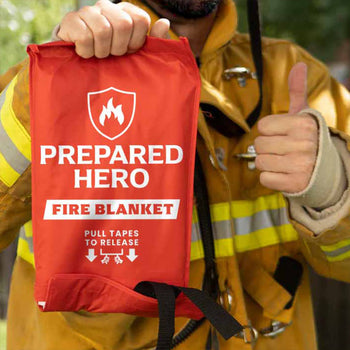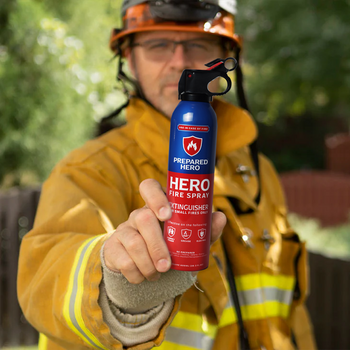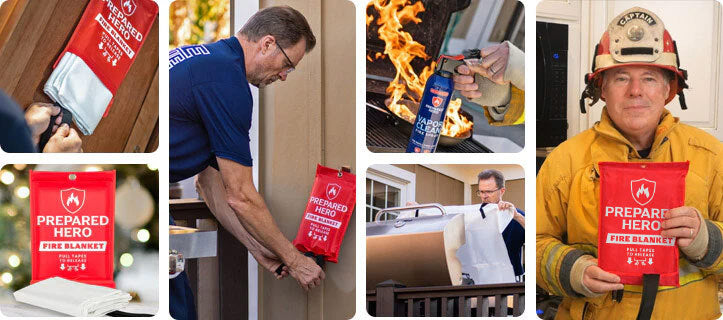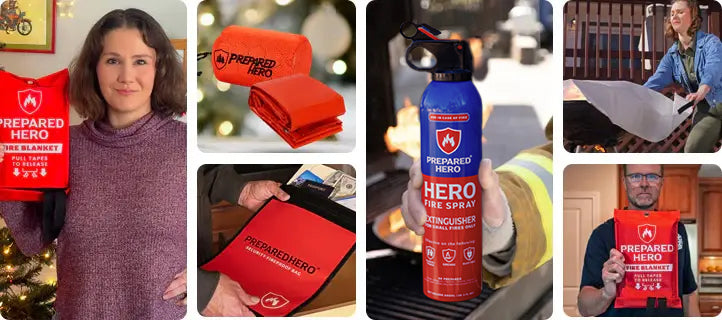Where you put your smoke detectors matters just as much as installing them. Proper placement makes sure they can detect...
Did you know? The risk of death in reported home fires is 60% lower in homes with working smoke alarms than in those without or with malfunctioning ones. The same NFPA (National Fire Protection Association) report says that about 59% of deaths were caused by fires in properties without (43%) or with non-working smoke alarms (16%).
Installing smoke detectors is one of the easiest ways to protect your loved ones. They’re a must, whether you’re living in a small apartment or a big house. But how exactly do you install smoke detectors? Can you do it yourself, or do you need an electrician? In this guide, we’ll walk you through everything you need to know about smoke detector installation.
Do You Need Smoke Detectors?

Yes, you need smoke detectors. They’re fire safety devices that alert you when a fire breaks out. This gives you enough time to get out safely. They also help you manage fire hazards and risks, especially when you’re living or working in fire-prone areas. Plus, your chances of surviving a fire drop a lot without working smoke detectors.
The good news? Smoke detectors are cheap, easy to install, and simple to maintain. You can protect your home with just a few bucks.
According to the NFPA (National Fire Protection Association), you need at least one smoke detector inside every bedroom, outside the bedrooms, and on each level of your house, including the basement. Know more about how many smoke detectors you need here.
Maintaining them is easy, too. Test them once a month by pressing the test button. Swap out the batteries every year, or sooner if they start randomly beeping in the middle of the night. Plus, replace the whole unit every 10 years, even if they seem fine.
Smoke detectors are also an important element of a fire safety plan. They prepare you for the unexpected, along with exit routes and fire drills.
How to Install Smoke Detectors

Installing smoke detectors in your home and workplace is a must. Here’s a simple step-by-step guide on how to install smoke detectors:
1. Pick the Right Spot
Start by choosing where you’ll install the smoke detector. According to the NFPA, you need one on every level of your home, in every bedroom, outside sleeping areas, and in the basement.
If you’re mounting a smoke detector on the ceiling, place it at least eight inches away from the nearest wall. If you’re mounting it on a wall, install it four to 12 inches down from the ceiling. Avoid installing it near vents, windows, or anything drafty, because it can mess with the detector’s performance.
2. Mount the Bracket
Next, grab the mounting bracket that came with your smoke detector. Use a drill to make small pilot holes where you’ll be putting the screws. Once done, secure the bracket tightly to the wall or ceiling using the given screws.
3. Connect the Power
Now it’s time to set up the power source. If you have a hardwired smoke detector, connect the wires according to the manufacturer's instructions. Make sure everything is grounded properly. If it’s a battery-powered detector, insert the batteries and double-check if they’re placed the right way.
4. Attach the Detector
Attach the smoke detector once the bracket and power are ready. Align the notches on the back of the device with those on the bracket. Then, twist it into place until it locks securely.
5. Test It
Press the test button after installing the smoke detector. You should hear the alarm sound and the power light come on. If it doesn’t, double-check the installation and battery placement.
6. Maintain It
Testing your smoke detector once a month ensures it’s working properly. Replace the batteries at least once a year or sooner if your smoke detector starts chirping. You should also replace the entire unit every 10 years to keep your home safe.
Do I Need an Electrician to Install a Smoke Detector?

You don’t always need an electrician to install a smoke detector if it’s a battery-operated model. You can install them yourself. All you have to do is mount the bracket, insert the batteries, and attach the unit. It’s something most people can do in minutes.
However, hardwired smoke detectors are more complex. You might want to hire an electrician when installing them, especially if you have no experience. Hardwired alarms have to be connected to your home’s electrical system, which requires wiring knowledge. If you’re comfortable working with electricity, you could do it yourself, but it's generally safer to call in a professional. An electrician will make sure the wiring is done properly and meets local building codes.
You also need an electrician when installing smoke detectors on high ceilings or retrofitting a home for interconnected alarms. Those jobs can get tricky, especially if you're dealing with older homes or complicated setups.
Who Is Responsible for Smoke Detector Installation When a Property Is Sold?
The seller is responsible for installing smoke detectors when a property is being sold. They should also make sure the smoke detectors are working during the sale. These requirements fall under the seller’s obligation to sell a habitable property.
While specific requirements vary by location, most states require homes to be safe and livable before the sale goes through, and smoke alarms are a big part of that. Some places, like California and Florida, even have specific rules about using sealed 10-year battery models.
The seller is also supposed to disclose any problems, like missing or broken smoke alarms. In states like Massachusetts, sellers have to pass a smoke detector inspection from the local fire department before they can sell a property.
Once the sale is complete, the responsibility shifts to the buyer. The new homeowner will be in charge of testing, maintaining, and eventually replacing the smoke detectors. So, if you’re planning to buy a property, double-check the smoke detectors before finalizing the deal to make sure everything is set up right.
How Much Does It Cost to Install a Smoke Detector?

Installing one smoke detector costs between $50 and $300. The exact cost varies depending on the type of smoke detector you have and how complex the installation is.
Installing a basic battery-operated smoke detector usually costs between $50 and $100. One unit typically costs $10 to $50. On the other hand, installing hardwired smoke detectors is more expensive. Installing one unit costs $150 to $300 each, while buying one costs $30 to $150.
If you want a smart smoke detector, expect to pay more. These can cost anywhere from $100 to $300 just for the device, plus extra for installation. Electricians usually charge $30 to $100 per hour, and it normally takes about an hour to install one smoke alarm.
Installing smoke detectors on high ceilings or needing a new circuit breaker can drive up the price, too. If your home needs special wiring or drywall work, the final bill will be higher. If you need to get smoke detectors installed, get a few quotes first so you know what to expect.
Can You Install Smoke Detectors Yourself?
Yes, you can install smoke detectors yourself if they’re battery-operated. However, hardwired smoke detectors, which are connected to your home's electrical system, should be installed by a qualified electrician for your safety. Working with wires and electrical circuits can be dangerous, so it’s better to have an electrician install them.
Will the Local Fire Department Install Smoke Detectors?

Some local fire departments will install battery-operated smoke detectors in your home for free, according to the US Fire Administration. However, other local fire departments don’t install smoke detectors.
On the bright side, many offer guides on how to install smoke detectors or give them for free to those in need. Some departments even hold events where firefighters will install detectors for residents, especially for senior citizens or low-income families. Get in touch with your local fire department to see if they install smoke detectors.
While the fire department can help install smoke detectors in certain cases, you’re generally responsible for buying and installing your smoke detectors. It’s also up to the homeowner to maintain and test them regularly. Keep in mind that the best way to protect your home from fire is to have functioning smoke detectors in the right spots.
Should Smoke Detectors Be In Every Room of the House?
Smoke detectors are not required in every room of the house. However, they’re required in every bedroom, outside sleeping areas, and on every level of the house, including the basement.
For example, a three-bedroom house with two floors needs at least six smoke detectors: one in each bedroom (3), one outside the hallway leading to the bedrooms (1), and one on each floor (2). A two-bedroom house with two floors and a basement needs at least six smoke detectors: one in each bedroom (2), one outside the hallway leading to the bedrooms (1), one on each floor (2), and one in the basement (1).
Who Do You Call to Install Smoke Detectors?

You can call a licensed electrician to install smoke detectors. They’re the best choice if you have hardwired smoke alarms that need to be connected to your home's electrical system. Handymen can also handle basic installations for battery-powered models.
Your local fire department can help, too, but it depends on where you live. Before you hire anyone, make sure they’re experienced with smoke detector installation. It’s a simple job, but it’s important to get it right for your safety. Always double-check their credentials before booking.
Are Hardwired Smoke Detectors Better Than Battery-Operated Ones?
Hardwired smoke detectors are usually the better choice if you want more reliable protection. They’re wired into your home’s electrical system and have backup batteries, so they’ll keep on working. Plus, all the alarms in the house sound when one alarm goes off. That way, everyone gets a warning no matter where they are. On the downside, hardwired detectors are harder to install. You need a professional to do the job. They also cost more upfront.
On the other hand, battery-operated smoke alarms are easier to set up. They’re good for apartments or temporary living situations. However, they rely heavily on their batteries and won’t work once they die.
If you’re looking for the best protection and don’t mind the extra work or cost, go with hardwired detectors. If you’re renting or on a tight budget, battery-operated detectors are a decent pick.
Conclusion
Smoke detectors are a great start, but they’re just one part of fire safety. You should also have fire blankets, fire sprays, fire extinguishers, flame shields, sprinklers, and an escape plan ready. Remember, a little preparation goes a long way.
Do you want reliable, easy-to-use, and affordable tools to put out small fires before they spread? Check out Prepared Hero’s fire prevention tools here, and get up to 51% off on certain items. Stay prepared, hero!


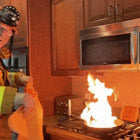 Fire
Fire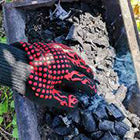 Safety
Safety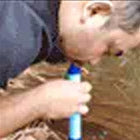 Survival
Survival Protection
Protection New
New
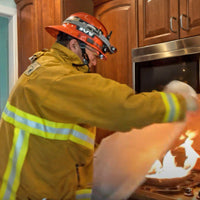 Fire
Fire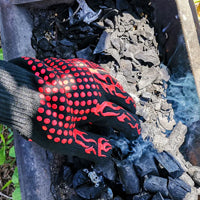 Safety
Safety Survival
Survival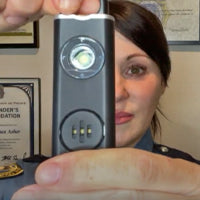 Protection
Protection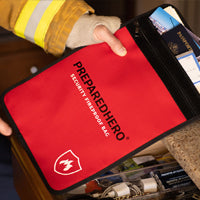 New
New
